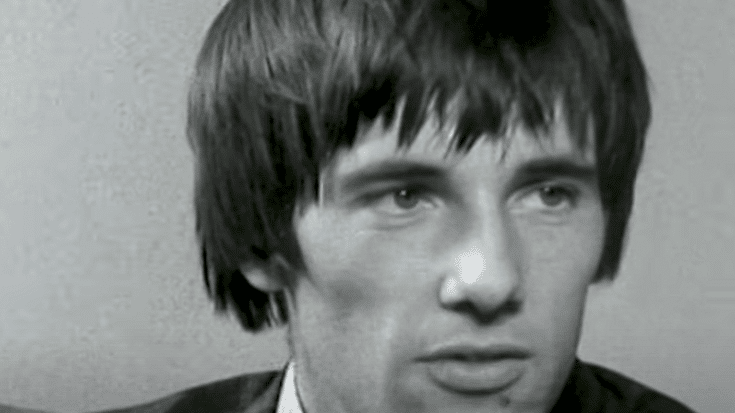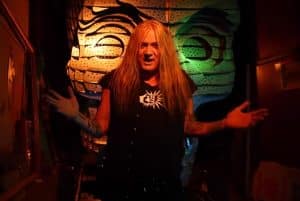You’ll See Why The Kinks Is One Of The Originators Of Punk Attitude In 1965 Interview

via ITN Archive / Youtube
The vibrant history of rock music is filled with a litany of fabled clashes among band members. Some of these feuds are profoundly significant, such as the protracted legal dispute between Pink Floyd’s Roger Waters and David Gilmour. Or the bitter war between Paul McCartney and John Lennon.
These disputes frequently serve as a testament to the complex love-hate dynamics between bandmates, with prime examples being the relationships between Mick Jagger and Keith Richards, as well as Dave Davies and Mick Avory of The Kinks.
This British Invasion sensation, with iconic hits like “You Really Got Me” and “All Day and All of the Night”, carved out their own niche in the 1960s music scene. However, The Kinks goes beyond their catchy melodies and infectious riff; these madmen were also instrumental in shaping the punk ethos.
In this exclusive 1965 interview, The Kinks’ legendary drummer Avory opens up about an infamous brawl during a Cardiff gig, offering a glimpse into a moment that encapsulated the punk attitude, years before the punk movement even officially began.
“We want to make it a ‘big action’ number”
Mick explained to an Independent Television Network (ITN) host what really happened in the short clip above. He said that people have always misinterpreted things and gave his own account of what happened before the legendary bust-up.
““You Really Got Me” was one of our biggest hits and… we’ve put this first in our act and we want to make it a ‘big action’ number, you know,” the drummer said.
The audience was throwing things onto the stage, so the band members were encouraged to do tricks, like Dave whirling his guitar, according to Mick.
“So Dave does this guitar thing and sort of whirls it around his head and pretends he’s thrown in the audience and I do a similar thing with my cymbal and I caught him an unfortunate blow on the side of the head,” Avory narrated.
https://twitter.com/KinKsDanTheFan/status/1226996305316253701
Sixteen stitches for a feud that has been brewing up for some time
“Certainly 18 stitches sound a bit more than a joke,” the host quipped, but Avory corrected him, saying Dave received 16 stitches. The host asked the drummer if there was any “trouble brewing up within the group”, but Avory denied it.
Although Avory said so, The Kinks were known for having a reputation for aggression and violence, and physical fights sometimes break out even onstage, hence that Cardiff gig. The drummer has always been the butt end of the Davies’ brother jokes, and the three had always fought amongst themselves.
Avory and Dave Davies had a violent fight before their Cardiff gig when a drunk Dave struck the drummer with a suitcase, prompting the latter to use his fists (and a headlock) to rearrange his bandmate’s face.
So Mick, who looked fresh and uninjured, casually and unblinkingly shared the management’s bull on the video. Punk icon, right there.
“Avory delivered a beheading”
Road manager Sam Curtis took measures to prevent further altercations, separating the feisty duo during traveling and preparations. But, right at the start as the band started playing “You Really Got Me”, sunglasses-wearing Dave directed verbal insults at Avory.
The insults persisted after the song, where Dave openly criticized Avory’s drumming skills and made provocative comments, suggesting that the music would improve if Avory played “with his cock”.
The tension escalated when Dave kicked Avory’s drum set across the stage, a surprising act that initially amused the audience, as they believed it to be part of the show’s arrangement. After a brief pause on his knees, Avory emerged from the ruined set, seized his hi-hat stand, and struck Dave on the back of the head with the cymbal end.
This blow caused Dave to collapse, and he remained motionless. Cardiff gig-mate Chris Dreja of the Yardbirds remembered the fight, and he feared for Dave’s life. “[Avory] delivered what to me was like an execution – a beheading. Seriously. It was such a violent act,” Dreja said.
The Kinks got banned in the US
Avory, fearing he had fatally injured his bandmate, swiftly left the concert hall and went into hiding. Due to the severe injuries Dave sustained (16 freaking stitches, in the head), the police were involved and confronted the drummer.
In a surprising turn of events, Dave Davies ultimately chose to drop all charges against Avory, and, incredibly, relations within the band were gradually mended. Unfortunately, the same could not be said for their prospects in the United States.
Due to the on-stage altercation and a series of other misadventures, The American Federation of Musicians imposed a four-year ban on the group, preventing them from touring in the United States. This prohibition occurred during a period when British music, led by the Beatles, was making its historic mark on American shores.
Undoubtedly, this ban significantly diminished The Kinks’ popularity in North America. As Davies candidly expressed, “In many respects, that ridiculous ban took away the best years of the Kinks’ career when the original band was performing at its peak.”
https://twitter.com/nikidoog/status/1016344012817600513
Caught in the kinks
In the ’60s, moral panic and societal outrage were in the early stages of shaping the public’s perception of metropolitan culture as a whole, and youth culture in particular. The Kinks became deeply entrenched in this evolving cultural landscape, with a specific focus on connecting with the working class.
British rock and roll music possessed a unique ability to articulate the language of the youth and to embody the image of a rebellious working class that resonated with young people. This marked a period when the younger generation was beginning to assert their beliefs and music became intricately linked with the notion of rebellion and youth.
The incidents that unfolded on the Cardiff stage carry a broader significance within the context of the 1960s. In this regard, The Kinks played a central role in paving the way for subsequent performers who sought to break free from the oversimplified youth identity of the time. The band stood out as one of the most distinctive acts to thrive in the 1960s, as they were committed to conveying the experiences of different social classes through popular culture.
They underscored the critical role of culture in shaping and solidifying working-class identities. In doing so, The Kinks brought the youth to the precipice of a newfound euphoria, effectively encapsulating the cultural transformations that were unfolding throughout the 1960s.













